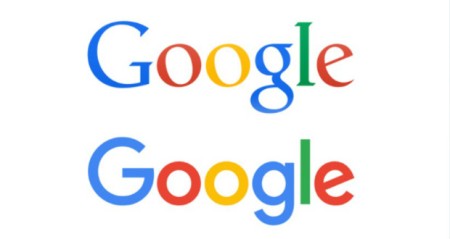
Google has a new logo and updating its image – but under the surface it’s still that pre-2010 half-evil censor
Eight years after Google pulled out of the censored Chinese internet, they’re back. It’s been reported that the company is working on a mobile search app that would block certain search terms and allow it to reenter the Chinese market.
Google has engaged in the China-controlled internet space before: but in 2010 it pulled out, citing censorship and hacking as reasons. It didn’t pull out completely – it still offered a number of apps to Chinese users, including Google Translate and Files Go, and the company has offices in Beijing, Shenzhen and Shanghai – But the largest of its services – search, email, and the Play app store – are all unavailable in the country.
Google co-founder Sergey Brin told the Guardian in 2010 that his opposition to enabling censorship was motivated to his being born in Soviet Russia. “It touches me more than other people having been born in a country that was totalitarian and having seen that for the first few years of my life,” he said as Google exited the Chinese market after 4 years of cooperating with the authorities.
But now they’re back, working on a mobile search app that would block certain search terms and black-listed material. The app is being designed for Android devices.
According to tech-based news site The Information, Google is also working on a censored news-aggregation app too. The news app would take its lead from popular algorithmically-curated apps such as Bytedance’s Toutiao – released for the Western market as “TopBuzz” – that eschew human editors in favour of personalised, highly viral content.
Patrick Poon, China Researcher at Amnesty International, called Google’s return to censorship “a gross attack on freedom of information and internet freedom.”
In putting profits before human rights, he said, Google would be setting a chilling precedent and handing the Chinese government a victory.
This is important because many computer users will set a search site as their homepage and even find content by entering key-words into the url bar of their browser. Because of Google’s ubiquity, it is frequently set as default search engine on browsers, meaning that millions of users will find that their experience of the internet is that delivered through the lens of Google. If that lens is smudged or cracked by censorship, all these users’ internet experience is skewed. So it is essential to highlight the fact that Google is not the neutral, trustworthy agent that many users think it to be.
GreatFire, an organisation that monitors internet censorship and enables circumvention of the “Great Firewall of China”, said the move “could be the final nail in the Chinese internet freedom coffin” and that “the ensuing crackdown on freedom of speech will be felt around the globe.”



 Posted by Martin X
Posted by Martin X 